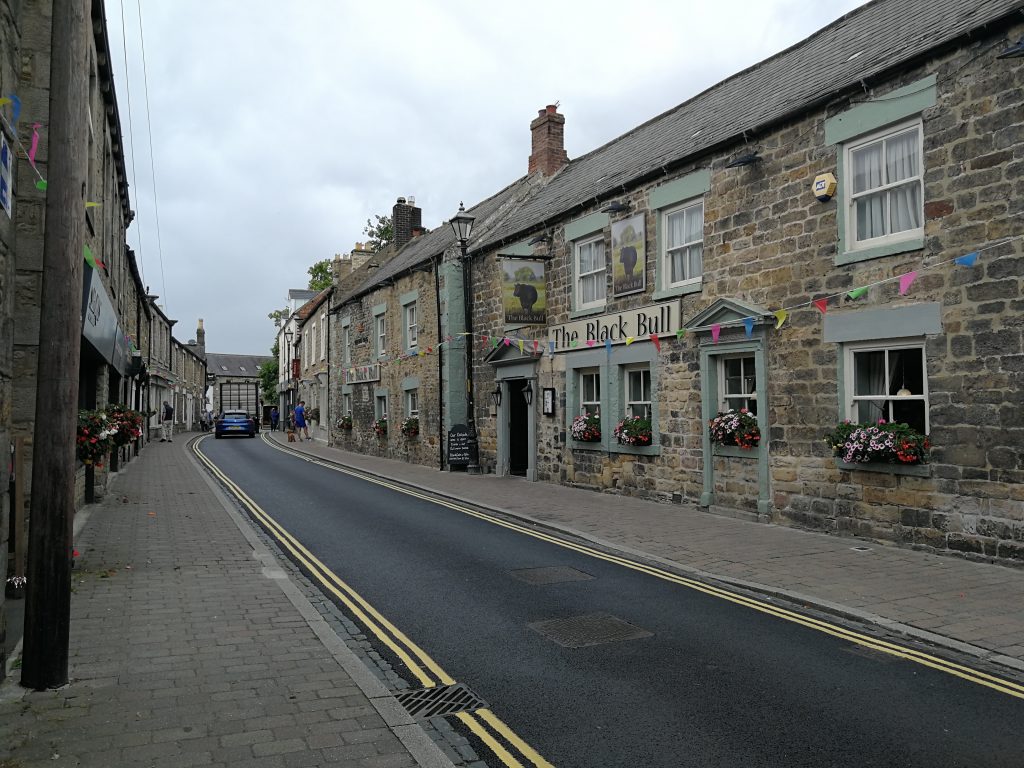With the COVID-19 outbreak set to continue for the foreseeable future, the implications for rural communities have received relatively little attention in policy and the mainstream media. This blog summarises some of the main challenges and emphasises the importance of monitoring rural economies and communities going forward.

Credit: Beth Clark
The present COVID-19 outbreak is affecting every aspect of rural life and as things stand, the duration of its impact is unknown. Rural areas have experienced something similar to this lockdown before, when the countryside was shut down in response to the Foot and Mouth Disease (FMD) outbreak, although this was not as widespread. There could be lessons to be learnt from that experience and the recovery afterwards.
Whilst certain aspects of rural life could prove to be a benefit at this time, being more sparsely populated areas of the country, other aspects of rural life can make life harder during the lockdown with implications for rural business, agriculture as well as wider societal consequences.
Rural businesses
For the rural economy there are both demand and supply-side shocks. On the demand side the impact will be greatest for those firms (and their supply chains) unable to provide their produce or services to consumers other than within their own business premises. On the supply side the lockdown predominately affects the availability and productivity of labour. Although the majority of UK farms are family farms where the workforce and capital is already on site, or drawn from their immediate rural localities, this will be a particular problem for certain agricultural sectors that rely on a mobile workforce, such as horticulture.
Social consequences
Everyone is feeling the pain of social isolation, both rural and urban. For those groups with limited access to the internet or with poorer mobile signal, this is exacerbated. Elderly people often do not have the skills to use the internet to stay connected, and there are issues of affordability. Some rural areas also have limited connectivity. This will have implications for home-schooling children, the online economy, and staying connected. Going forward, full digital connectivity is essential, regardless of class or place. It is also essential that training is made available so that people have the skills to be able to stay digitally connected.
It is also worth noting that Covid-19 is itself prompting many positive responses of community, neighbour and volunteer support. How public, private and third sectors effectively work together, and crucially with the rural voluntary, community and social enterprise (VCSE) ecosystem, is critical to the immediate emergency response and will be vital to longer-term recovery. Greater support of these are needed.
One interesting aspect of the current lockdown is the social and cultural relationship between rural and urban populations. There has been widespread media coverage of roadside signs asking visitors to stay away from the Lake District and rural Wales, for example, sometimes reinforced by police checkpoints. Visits to second homes as rural sanctuaries have been especially divisive, reflecting the continued concentration of services in urban centres. Many rural residents fear their already limited services will be stretched to breaking point by the influx of urban escapes. This highlights ongoing battles around issues of sustainability of rural communities without the influence of tourism or second home owners.
Recommendations
Looking to the future, there is a need for ongoing and long-term monitoring of business impacts, resilience and recovery. Firms and social enterprises in different sectors and places are impacted and recover at different rates. Experience of FMD and credit crunch/recession showed that for some firms and rural economies the recovery will be swift, for others it will be delayed and this pattern is likely to be repeated in the aftermath of Covid-19.
Many of the core rural institutions also face a struggle for financial survival because of the impacts of Covid-19, including village halls, village shops and pubs. ACRE and the Rural Coalition report[1] that the ability of village halls to weather the storm is uncertain. Support for these institutions is critical to their long-term survival and the help they can give in the recovery phase.
The distance from sources of advice and support, issues with digital access and literacy also highlight a need for the monitoring of the uptake of support to ensure that it is taken and appropriate and equitable assistance. During FMD, when large swathes of the countryside closed for several months due to measures to prevent the spread of the disease, it was apparent that many firms had not sought or obtained special assistance. These included some that were severely impacted, and many were frustrated in their attempts to access aid or fell through the gaps of the support framework.Better monitoring is needed to ensure that this does not happen again.
This blog was summarised from a recent CRE briefing note. Read the briefing note in full here.
[1] Joint letter “Covid-19 and Rural Communities” to DEFRA Secretary of State from the chairs of ACRE, Plunkett Foundation, Rural Services Network and Rural Coalition, 20th March 2020.
